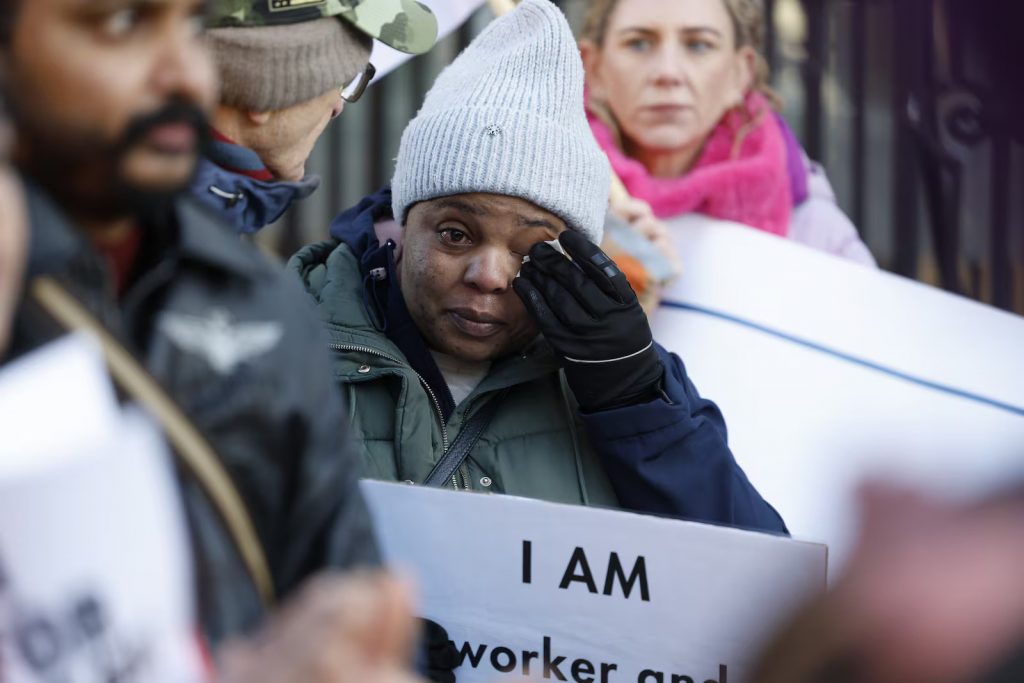Many Zimbabwean migrant workers in Ireland are struggling with long and painful waits to reunite with their families, due to strict family reunification rules. One of them is Bethal Muzaya, who moved to Ireland three years ago to work as a healthcare assistant. She secured stable accommodation and began working with autistic children under the General Employment Permit. After a year, she applied for a family reunification visa for her husband and two children, but the application was refused. She appealed the decision and has now been waiting 18 months with no update.
Her situation became even more heartbreaking in August when she learned that her husband had suddenly died back home in Zimbabwe. Now her children have no surviving parent with them. Speaking about her pain, she said, “I don’t know what to do anymore. My kids are back home, they need me, I need them, and now that they’ve lost their father, I am the only surviving parent.” Her story shows how difficult the system is for many workers who are legally living and working in Ireland.
Workers with Critical Skills Employment Permits can usually bring their families more easily. But workers like Ms. Muzaya, who hold General Employment Permits, face long delays and high rejection rates even when they have steady jobs and suitable housing. The unequal treatment between permit types was one of the main reasons migrant workers gathered at a rally outside Leinster House on Thursday. The protest was organised by the Migrant Rights Centre Ireland to demand fairer family reunification rules.
Another Zimbabwean worker, Angelina Nyoni, shared her own emotional story at the rally. Living in County Cavan, she has been separated from her partner and 12-year-old son and spent her 50th birthday alone. Her family reunification application was also rejected, and she is still waiting for the result of her appeal. She described the emotional burden of her situation, saying that she cries on her way to work and again when she arrives home to an empty house. Working with children who sometimes call her “mum” makes the separation even harder.
Campaigners argue that the current policy does not make sense economically or socially. Dave Gibney, campaigns coordinator at the Migrant Rights Centre Ireland, said that employers themselves want the rules changed because migrant workers contribute hundreds of millions of euros in taxes. He explained that if families could join workers sooner, their spouses would also work and contribute more to the economy. He said the policy hurts workers and does not benefit Ireland.
Income rules also make the reunification process even more difficult. A migrant worker must earn €36,000 to bring one child and €42,000 to bring two children. But most healthcare workers earn only between €30,000 and €33,000. This makes it nearly impossible for many to qualify, even if they are doing essential jobs and supporting Ireland’s healthcare system.
The Department of Justice has confirmed that two reviews are currently underway. One is examining the general non-EEA family reunification policy, which was last updated in 2016. The second review looks at rules for people granted International Protection, especially as the EU prepares new migration reforms. A spokesperson said that the Minister for Justice, Jim O’Callaghan, will present both reviews to Cabinet next week for further discussion.
For Ms. Muzaya, Ms. Nyoni, and many other migrant workers, these reviews bring some hope but also deep frustration. While they wait for changes, their families remain separated, vulnerable, and unsure of when the reunification process will finally allow them to live together again. Their experiences highlight how deeply immigration policies affect real families and why many are urgently calling for reform.

